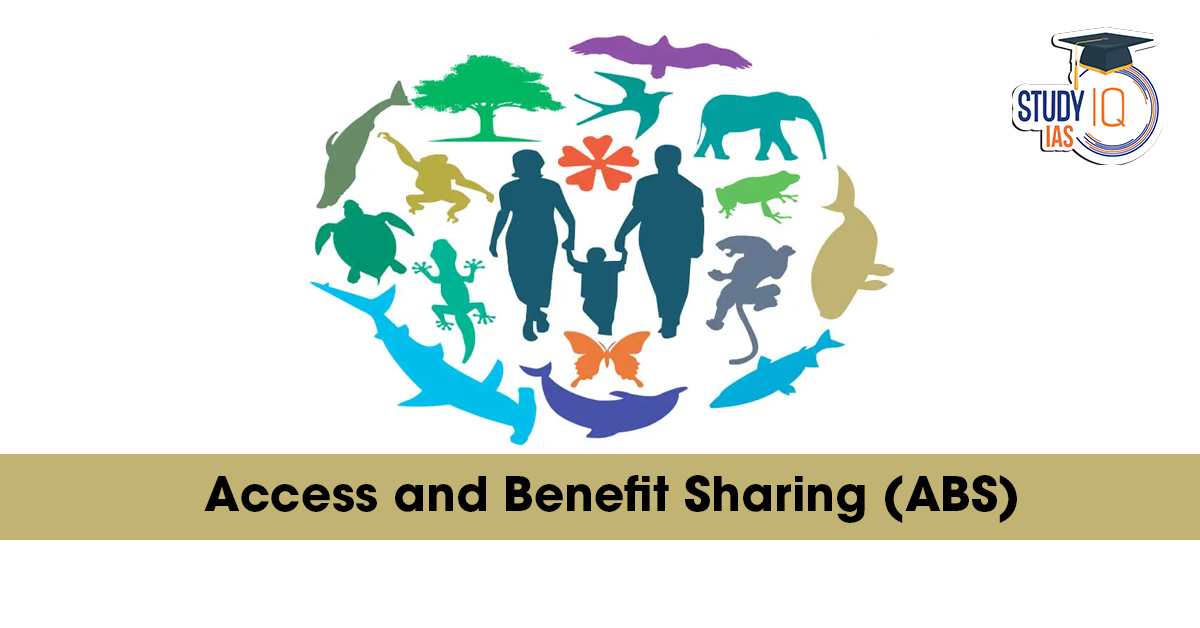Table of Contents
Access and Benefit Sharing (ABS) is a crucial concept under the Convention on Biological Diversity (CBD) and the Nagoya Protocol (2010). It ensures that the benefits arising from the use of genetic resources and traditional knowledge are fairly and equitably shared between providers (mostly local communities or countries) and users (such as companies, researchers, or industries).
In simple terms, ABS creates a balance between biodiversity conservation and economic development by rewarding those who protect and preserve natural resources.
What is Access and Benefit Sharing (ABS)?
Access and Benefit Sharing refers to the framework governing the access to biological resources — such as plants, animals, and microorganisms — and the sharing of benefits derived from their utilization.
It is based on three main objectives of the Convention on Biological Diversity (CBD):
-
Conservation of biological diversity.
-
Sustainable use of its components.
-
Fair and equitable sharing of benefits arising from the utilization of genetic resources.
Legal Framework of ABS
1. Convention on Biological Diversity (CBD) – 1992
The CBD was adopted at the Earth Summit in Rio de Janeiro (1992). It recognized that countries have sovereign rights over their biological resources and that the use of these resources must involve equitable benefit sharing.
2. Nagoya Protocol on ABS – 2010
The Nagoya Protocol, adopted in Japan in 2010, provides a legal framework for implementing the ABS principles of the CBD.
It came into force in 2014 and ensures:
-
Transparent legal access to genetic resources.
-
Fair sharing of benefits with provider countries and communities.
-
Prior informed consent (PIC) and mutually agreed terms (MAT).
3. Biological Diversity Act, 2002 (India)
India, being a megadiverse country, implemented the Biological Diversity Act, 2002, which incorporates ABS principles.
The National Biodiversity Authority (NBA) and State Biodiversity Boards (SBBs) regulate the access and benefit-sharing mechanisms in India.
Key Components of ABS
| Component | Description |
|---|---|
| Access | Permission granted to use biological resources or associated traditional knowledge. |
| Benefit Sharing | Distribution of monetary or non-monetary benefits arising from the use of resources. |
| Prior Informed Consent (PIC) | Consent obtained from the resource provider before use. |
| Mutually Agreed Terms (MAT) | Agreement outlining the sharing of benefits between users and providers. |
Types of Benefits under ABS
ABS ensures that the benefits from using genetic resources are shared in multiple ways:
1. Monetary Benefits
-
Upfront or milestone payments
-
Royalties from commercial products
-
License fees or access fees
2. Non-Monetary Benefits
-
Technology transfer
-
Joint research and development
-
Capacity building for local communities
-
Acknowledgment of traditional knowledge holders
Examples of Access and Benefit Sharing
1. Neem (Azadirachta indica) Case
Indian scientists and farmers protested against patents granted in the U.S. and Europe for neem-based pesticides. The patents were later revoked, reaffirming the role of traditional knowledge and equitable benefit sharing.
2. Kani Tribe and Jeevani Case
The Kani Tribe of Kerala shared traditional knowledge about the medicinal plant Arogyapacha. The Tropical Botanic Garden and Research Institute (TBGRI) developed the drug Jeevani, and the tribe received a share of royalties, setting an example for successful ABS implementation in India.
Challenges in Implementing ABS
-
Lack of awareness among local communities and industries.
-
Weak enforcement of ABS laws at the state and local levels.
-
Conflict of interest between users (corporates) and providers (tribes or nations).
-
Difficulty in valuing traditional knowledge or genetic resources.
-
Cross-border resource sharing issues among countries.
India’s ABS Mechanism
The National Biodiversity Authority (NBA) is the apex body managing ABS implementation in India.
Functions of NBA
-
Regulating access to biological resources for foreign entities.
-
Ensuring benefit sharing with local communities.
-
Approving research and commercial use of resources.
-
Maintaining Biodiversity Management Committees (BMCs) at local levels.
ABS Guidelines in India
-
ABS Guidelines, 2014 by the NBA specify the process for obtaining approval and determining benefit-sharing formulas.
-
Amendments in the Biological Diversity Act (2023) aim to simplify procedures for Indian companies while ensuring fair benefits to traditional knowledge holders.
Importance of Access and Benefit Sharing
-
Promotes biodiversity conservation.
-
Empowers indigenous and local communities.
-
Ensures equitable economic development.
-
Prevents biopiracy and misuse of genetic resources.
-
Encourages sustainable scientific research and innovation.
Global Relevance
Countries such as Brazil, South Africa, and India have incorporated ABS frameworks to prevent biopiracy and ensure local communities benefit from global trade in genetic resources.
With the growing global biotechnology market — worth over $2 trillion — ABS plays a vital role in ensuring ethical, legal, and sustainable use of biodiversity.
Conclusion
Access and Benefit Sharing (ABS) is more than a policy mechanism — it is a bridge between traditional ecological wisdom and modern science. By ensuring fair compensation to resource holders, ABS promotes both biodiversity conservation and social justice.
To achieve sustainable development goals, it is essential that governments, industries, and communities work together to implement ABS in letter and spirit.


 Navigating Uncharted Waters: What Next f...
Navigating Uncharted Waters: What Next f...
 Astronaut Reentry Explained: How Spacecr...
Astronaut Reentry Explained: How Spacecr...
 Missile Interceptors Explained: Role in ...
Missile Interceptors Explained: Role in ...




















